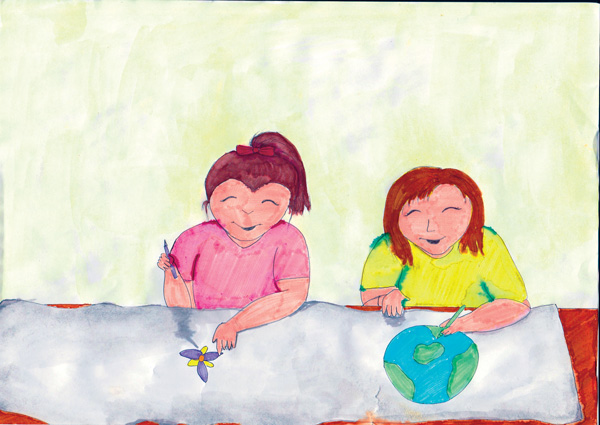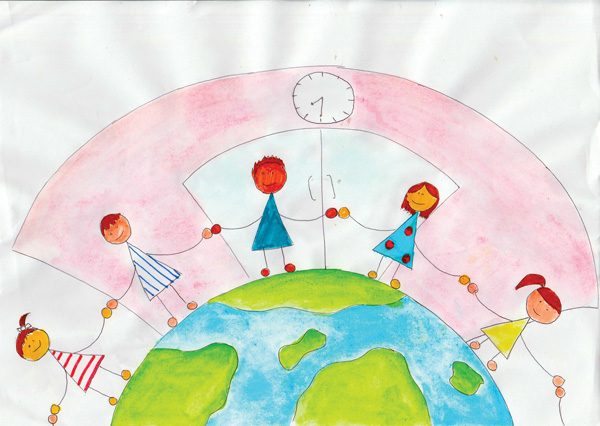Encouraging inclusion in my community
In my community there is a large number of children who are in the age of going to school but unfortunately they are not able to attend school due to the existing different issues. There are some bad traditional beliefs, also family segregations make children fail to join school. I tried my level best to make sure that I visited one family after another to explain the advantages of getting an education and to discourage bad traditional beliefs that may affect the community. I encouraged the sending to schools of both females and males without segregation, and it has been successful. This is a great achievement that should be supported and I am encouraged to continue working as a team so as to reach our goal.
Nothing has stopped me from going to school because my family is aware of the importance of education and that education is key for both genders.
Evelyne Makelo, student, age 25, Tanzania

Campaigning for disability inclusion
On 3 December 2016, on the international day of people with disability, I and my fellow youth council members planned and coordinated an event in Mbeya city, under the Jane Goodall Roots and Shoots programme. The event aimed to empower people with special needs to show their talents and creativity. We also created awareness among parents of children with special needs on the available opportunities for their kids and on their rights, like getting a proper education. We urged the parents not to feel ashamed of their children by hiding them from the world; they are normal human beings who deserve to feel and experience the world just like any other person.
For the past several years of my school life I never got an opportunity to speak of how inclusive our school was. I really don’t know why we never had such a platform because we were studying with some students with special needs. I think they would have benefited a lot from such a platform where we, as students, could stand together and give out our opinions, views and suggestions on what we think. This includes our recommendations on what we think should be done to make our schools more inclusive so as to create unity, peace and a sustainable welfare for all students.
Stella Martin, International Citizen Service return volunteer, age 25, Tanzania

Campaigning for disability inclusion
I participated in a campaign to help children who are not in school to get into education through enrolling them in neighbouring schools. We started first to visit every house in that area and take information about those children who were not in school but were supposed to be in school. Most of the children were disabled children. The reason for them to be out of school was because those schools refused to enrol them, but also their parents and guardians never took them to school, thinking that they cannot be able to learn comfortably and feel confident in front of their fellow learners. This scenario proved that most of educational stakeholders are not aware of inclusive education.
I got to talk about how inclusive school is through a meeting that brought most of the educational stakeholders together to tell them about inclusive in schools.
I told them what inclusive means and the benefits. Inclusive means to bring all learners together regardless of their differences. Those people who are responsible to provide inclusive education have to make sure that learners’ needs and requirements are met. As well as enrolling them in schools, stakeholders have to make sure they create friendly environments for these learners to participate fully in the process of learning, they have to be valued too.
Vumilia Michael, International Citizen Service return volunteer, age 25, Tanzania
